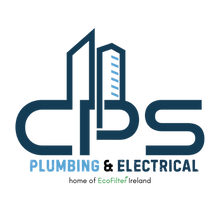Hard Water Areas in Ireland: County-by-County Breakdown
Hard water is common in many parts of Ireland due to naturally occurring minerals like calcium and magnesium. While it's not a health risk, hard water causes limescale buildup in appliances, reduces cleaning efficiency, and can impact your household plumbing over time.
What Is Water Hardness?
Water hardness is measured in mg/L (milligrams per litre) of calcium carbonate (CaCO₃). Here's a quick reference scale:
- Soft: 0–50 mg/L
- Moderately Soft: 51–100 mg/L
- Slightly Hard: 101–150 mg/L
- Moderately Hard: 151–250 mg/L
- Hard: 251–350 mg/L
- Excessively Hard: Over 351 mg/L
Water Hardness Levels by County
Leinster
- Dublin: Varies by area. Check your Eircode at water.ie.
- Meath: Trim water supply: 380.55 mg/L (Excessively Hard). Slane: 311.75 mg/L (Hard). See full report.
- Other counties (Kildare, Wicklow, etc.): Use Uisce Éireann’s tool for your location.
Munster
Most counties (Cork, Clare, Kerry, etc.) have mixed levels of hardness. Use the Eircode tool to find specific readings.
Connacht
- Sligo: Lough Gill supply: 110 mg/L (Slightly Hard). Riverstown: 320 mg/L (Hard). More info.
- Other counties: Refer to Uisce Éireann for your Eircode.
Ulster
Hardness data is limited for Cavan, Donegal, and Monaghan. Use the national tool linked above to check your home’s supply.
Managing Hard Water in Your Home
- Install a water filter system to reduce mineral content and prevent limescale buildup.
- Use descaling agents regularly in kettles, washing machines, and appliances.
- Consider a water softener for long-term protection.
At Ecofilter Ireland, we provide affordable, low-maintenance filtration systems that are perfect for hard water areas. Shop now or follow us on facebook for tips and offers.
Check Your Water Hardness
Use the official water quality checker to find the hardness level in your area: https://www.water.ie/help/water-quality/hard-water

